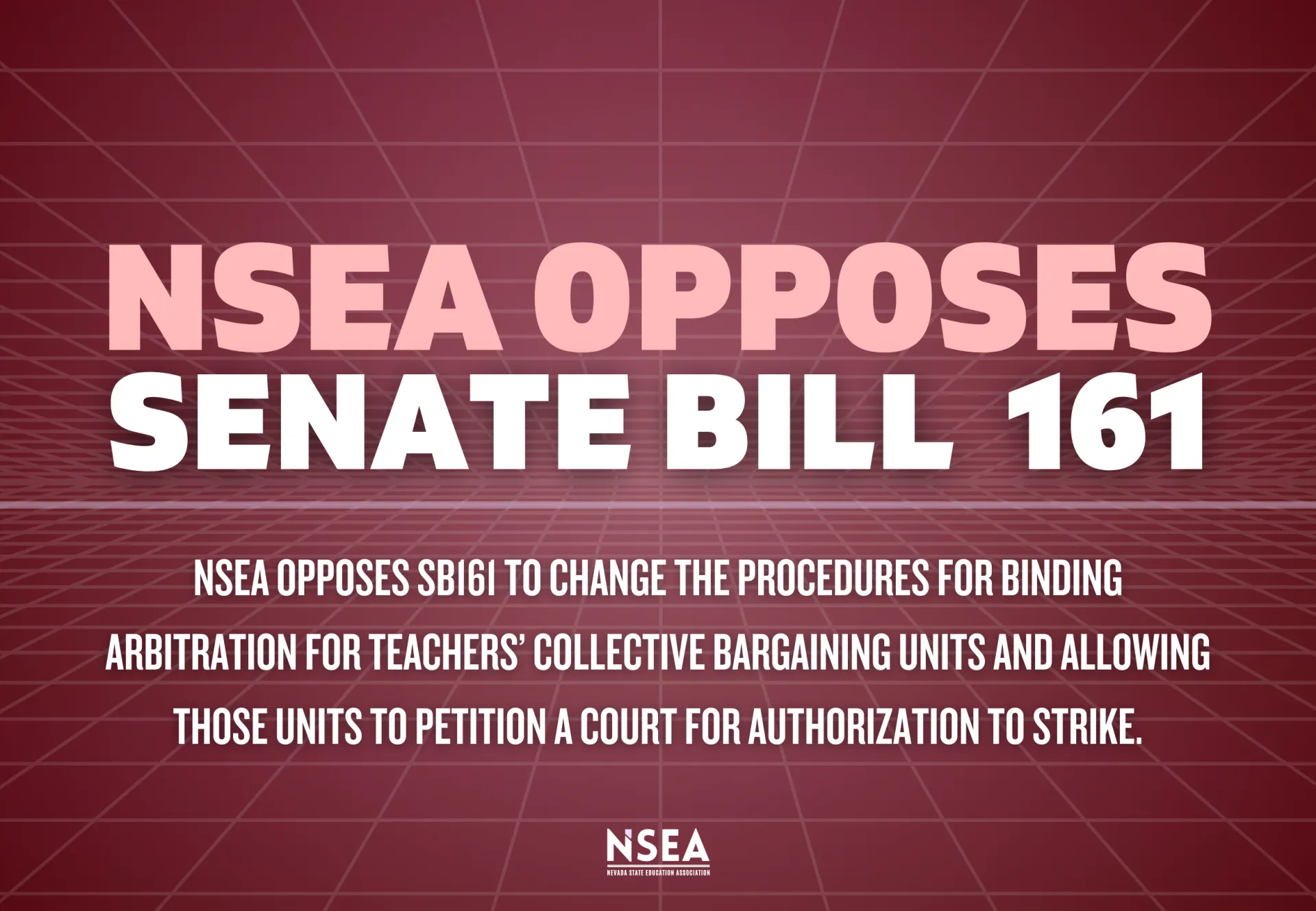5.22.25 Assembly Committee on Government Affairs
NSEA opposes SB161 to change the procedures for binding arbitration only for teachers’ collective bargaining units and allowing a stoppage of work, slowdown or interruption of operations only by teachers at one or more school sites in a district.
Active employees who are members of the NSEA include teachers and other licensed education professionals, education support professionals, and administrators. NSEA believes in fairness for all our member types, especially in the collective bargaining process. While we would support changes in the law to allow all educators to strike, changes that advantage only one type of educator unit in the collective bargaining process disadvantage other units. This goes for allowing a single group of educators the ability to threaten to strike or strike at a number of locations, as well as moving up the timelines for binding arbitration. If only one education unit can make strike threats or stop, slowdown or interrupt operations at a number of school sites to increase leverage at the bargaining table, that will leave less available for other units to negotiate. The same holds true if that unit can access binding arbitration before any of the other units.
During the Senate hearing, the bill sponsor referenced a measure that has qualified for the ballot that would provide teachers the right to strike, calling it a “blunt instrument”. While the bill sponsor may be correct, this is the second time in recent years a ballot measure has been used to leverage the legislature. This is a good indicator of how the provisions of this bill would be used moving forward.
5.7.25 Senate Committee on Government Affairs
Active employees who are members of NSEA include teachers and other licensed education professionals, education support professionals, and administrators. NSEA believes in fairness for all our member types, especially in the collective bargaining process. While we would support changes in the law to allow all educators to strike, changes that advantage only one type of educator unit in the collective bargaining process disadvantage other units. This goes for allowing a group of educators the ability to threaten to strike, as well as moving up the timelines for binding arbitration. If only one education unit can make strike threats to increase leverage at the bargaining table, that will leave less available for other units to negotiate. The same holds true if that unit can access binding arbitration before any of the other units.
Further, we are concerned by the mechanism that allows employee organizations representing teachers to petition a court for the authorization to strike. Asking a judge to weigh the impacts of a strike on pupils against issues like large class sizes is clumsy and misguided. We instead believe this issue should be dealt with in the collective bargaining process, as proposed in AB155.
What's On Your Mind?

